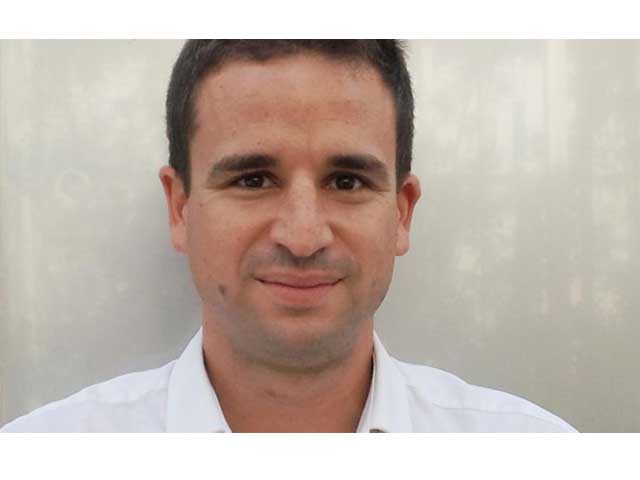
He was delivering a lecture on 'The Iran-Russia Entente: Marriage of Convenience or Strategic Partnership' at Marriott hotel on Wednesday. The lecture was organised by the Area Study Centre for Europe, Karachi University, in collaboration with the Karachi Council on Foreign Relations under the Open Doors by Alliance française de Karachi.
According to Therme, Iran emerged from years of economic isolation recently when the United Nations' nuclear watchdog ruled it had curbed its nuclear programme and cleared the way for the lifting of UN, US and European Union sanctions.
Drug, human trafficking: Pakistan, Iran agree on enhanced border control
Therme further said that lifting of sanctions on Iran is progressive and slow. Iran may become an important regional ally and economic partner of the West following the lifting of sanctions, but this will not affect its interests in the East, especially its partnership with Russia.
Therme said the rise of the 'so-called Islamic State (ISIS)' in the Middle East has helped the West realise the importance of Iran and its potential to become a partner in the war against the militant outfit.
"Europe places a top priority on fighting [ISIS] after attacks in France in November, 2015, as security is [the] priority of each state," said Therme. He was replying to a question about the heavy funding that ISIS receives and uses in buying arms and ammunitions. Earlier, fighting ISIS was not Europe's priority, he said. He added that he did not know where ISIS gets funds from.
Answering another question, Therme said that Europe cannot make an independent security policy for the Arab world due to security reasons, thus, they rely on the US.
Post-sanctions: Pakistan expects positive response from Iran
Retired ambassador Shahid M Amin said that Russia and Iran are neighbouring states but their relations never remained smooth. After the dismemberment of the Soviet Union, the relations between both the countries revived to their pre-Islamic revolution level. Both the countries also have difficult relations with the US.
"Pakistan has deep interest in what is happening in Iran because it is our neighbouring country and whatever happens in Iran has bearing on Pakistan," said Amin.
He further said that Iran has been facing isolations due to the attitude of the West and the US but now things are getting a little better.
European countries support Iran because they are dependent on Iran for oil, said Therme, adding that Iran has been successful in developing a positive attitude towards Russia and in the next decade things will further improve.
"Iran is more active in the region as [a] sectarian player but it has lost its credibility in [the] Sunni Arab [world]," said Therme, adding that it enjoyed this credibility in the past by raising its voice against the US and Israel.
Dr Uzma Shujaat, the director of the Area Study Centre for Europe, said Iran-Russia cooperation are based on five pillars - energy, nuclear programme, bringing peace in Afghanistan, ensuring stability in Central Asia and safeguarding bilateral interests in Iraq, Syria and the greater Middle East. She said that Russia played an important role in lifting sanctions from Tehran and it is expected that their relationship will grow further.
Ahsan Mukhtar Zubairi discussed the performance of the Karachi Council on Foreign Relations in the last 13 years. The lecture was followed by a question-and-answer session. A large number of students and members of the diplomatic community attended the lecture.











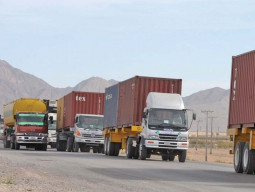



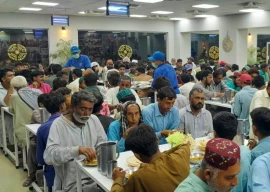
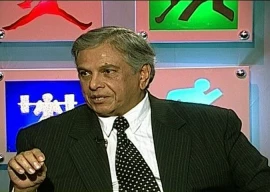
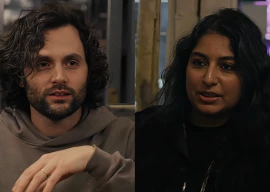
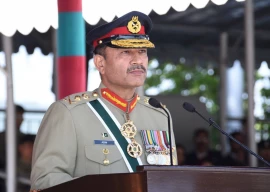
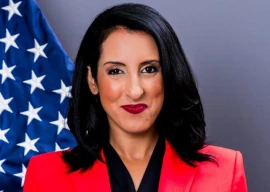





1714024018-0/ModiLara-(1)1714024018-0-270x192.webp)









COMMENTS
Comments are moderated and generally will be posted if they are on-topic and not abusive.
For more information, please see our Comments FAQ